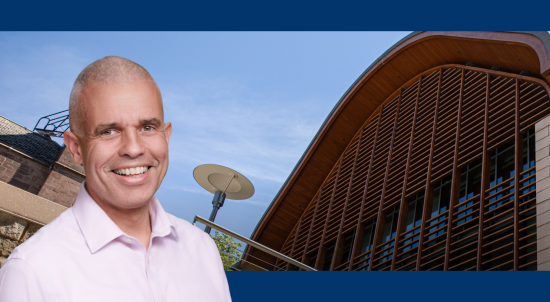
Women's Leadership Program: Leading With Power and Influence
Published: January 2024
Description
The concepts of power and leadership have taken on a new meaning in the modern workplace. Outward displays of authority and strength are no longer considered essential to lead effectively. However, this has resulted in many women leaders disidentifying with power as a concept and has even led to them undermining their progression.
This program gives women leaders and their supporters a unique opportunity to redefine and harness their power. Over the span of six weeks, you’ll explore a holistic view of power — one that encompasses both influential (charismatic, persuasive) and connected (empathetic, community-focused) attributes — which can be used in various daily interactions. The program is guided by expert faculty who will help you understand the existing power structures and dynamics within organizations and explain the pivotal role that positive relational energy plays in contemporary leadership. You’ll also discover how your everyday interactions can drive positive change and enhance your ability to cultivate an environment conducive to organizational success. Throughout this program, you’ll experience a transformative journey toward leadership that embraces well-being, purpose, and belonging.
Course Takeaways
- Tap into your potential to become a dynamic leader that embodies both strong and empathetic qualities
- Gain a deeper understanding of power structures within your organization and use it to foster positive change
- Learn how to cultivate constructive relationships and embrace a growth-oriented approach for more impactful leadership
- Engage with and learn from a diverse international network of women leaders
Meet the Instructors
 Emma Seppälä’s areas of expertise are positive leadership, emotional intelligence, well-being and social connection. She is the Faculty Director of the Yale School of Management’s Women’s Leadership Program and is the author of The Happiness Track. Seppälä advises leaders on how to build a positive organization and is a frequent contributor to Harvard Business Review, the Washington Post, and Psychology Today.
A repeat guest on Good Morning America, Seppälä’s work and research have been featured in top media and television outlets like The New York Times, The Washington Post, The Chicago Tribune, NPR, The Boston Globe, ABC News and CBS News. Her research on yoga-based breathing for military veterans returning from war in Iraq and Afghanistan was highlighted in the documentary Free the Mind. She is also featured in a number of other documentaries like The Altruism Revolution and What You Do Matters.
Seppälä is the recipient of a number of research grants and service awards including the James W. Lyons Award from Stanford University for founding Stanford’s first academic class on the psychology of happiness and launching well-being programming for Stanford students.
She graduated from Yale (BA), Columbia (MA), and Stanford (PhD). Originally from Paris, France, she is a native speaker of French, English, and German and conversant in Spanish and Mandarin Chinese.
Biography
Emma Seppälä’s areas of expertise are positive leadership, emotional intelligence, well-being and social connection. She is the Faculty Director of the Yale School of Management’s Women’s Leadership Program and is the author of The Happiness Track. Seppälä advises leaders on how to build a positive organization and is a frequent contributor to Harvard Business Review, the Washington Post, and Psychology Today.
A repeat guest on Good Morning America, Seppälä’s work and research have been featured in top media and television outlets like The New York Times, The Washington Post, The Chicago Tribune, NPR, The Boston Globe, ABC News and CBS News. Her research on yoga-based breathing for military veterans returning from war in Iraq and Afghanistan was highlighted in the documentary Free the Mind. She is also featured in a number of other documentaries like The Altruism Revolution and What You Do Matters.
Seppälä is the recipient of a number of research grants and service awards including the James W. Lyons Award from Stanford University for founding Stanford’s first academic class on the psychology of happiness and launching well-being programming for Stanford students.
She graduated from Yale (BA), Columbia (MA), and Stanford (PhD). Originally from Paris, France, she is a native speaker of French, English, and German and conversant in Spanish and Mandarin Chinese.
Biography
 Rodrigo Canales does research at the intersection of organizational theory and institutional theory, with a special interest in the role of institutions for economic development.
Specifically, Rodrigo studies how individuals are affected by and in turn purposefully change complex organizations or systems. Rodrigo's work explores how individuals’ backgrounds, professional identities, and organizational positions affect how they relate to existing structures and the strategies they pursue to change them. His work contributes to a deeper understanding of the mechanisms that allow institutions to operate and change.
Rodrigo has done work in entrepreneurial finance and microfinance, as well as in the institutional implications of the Mexican war on drugs. His current research is divided in three streams.
The first focuses on the structural determinants of the quality of startup employment.
The second, in partnership with the Hewlett Foundation, explores the conditions under which development policies and practices are built upon and incorporate existing, rigorous evidence.
The third, with generous support from the Merida Initiative, explores how to build effective, resilient, and trusted police organizations in Mexico.
Rodrigo teaches the Innovator Perspective at the Yale School of Management. He sits in the advisory board of the Dalai Lama Center for Ethics and Transformative Values at MIT. Rodrigo also spent the 2014-2015 academic year advising the Mexican government on the US-Mexico bilateral relationship and and sits in the Board of Trustees of the Nature Conservancy.
Biography
Rodrigo Canales does research at the intersection of organizational theory and institutional theory, with a special interest in the role of institutions for economic development.
Specifically, Rodrigo studies how individuals are affected by and in turn purposefully change complex organizations or systems. Rodrigo's work explores how individuals’ backgrounds, professional identities, and organizational positions affect how they relate to existing structures and the strategies they pursue to change them. His work contributes to a deeper understanding of the mechanisms that allow institutions to operate and change.
Rodrigo has done work in entrepreneurial finance and microfinance, as well as in the institutional implications of the Mexican war on drugs. His current research is divided in three streams.
The first focuses on the structural determinants of the quality of startup employment.
The second, in partnership with the Hewlett Foundation, explores the conditions under which development policies and practices are built upon and incorporate existing, rigorous evidence.
The third, with generous support from the Merida Initiative, explores how to build effective, resilient, and trusted police organizations in Mexico.
Rodrigo teaches the Innovator Perspective at the Yale School of Management. He sits in the advisory board of the Dalai Lama Center for Ethics and Transformative Values at MIT. Rodrigo also spent the 2014-2015 academic year advising the Mexican government on the US-Mexico bilateral relationship and and sits in the Board of Trustees of the Nature Conservancy.
Biography
 Heidi Brooks teaches and advises on the subject of everyday leadership: the everyday micro-moments of impact that shape our lived experiences. Creating more courageous communities—especially within organizations—is a particular passion of hers. Dr. Brooks specializes in large-scale culture change projects focused on individual and collective leadership effectiveness in organizations.
Interpersonal Dynamics, the MBA elective she has taught for 15 years, is one of the courses most in demand at Yale School of Management. Dr. Brooks pioneered the Everyday Leadership course at SOM, where she first taught the Principles of Everyday Leadership. She has also taught Emotional Intelligence, Power & Politics, Managing Teams and Groups, and Coaching Skills for Managers. Dr. Brooks received her doctorate in psychology from the University of California at Berkeley and a bachelor’s degree from Brown University. She is a lifelong experiential learner; you can find her as a student in classrooms as far-ranging as improvisational theater and immersion language lessons.
Biography
Heidi Brooks teaches and advises on the subject of everyday leadership: the everyday micro-moments of impact that shape our lived experiences. Creating more courageous communities—especially within organizations—is a particular passion of hers. Dr. Brooks specializes in large-scale culture change projects focused on individual and collective leadership effectiveness in organizations.
Interpersonal Dynamics, the MBA elective she has taught for 15 years, is one of the courses most in demand at Yale School of Management. Dr. Brooks pioneered the Everyday Leadership course at SOM, where she first taught the Principles of Everyday Leadership. She has also taught Emotional Intelligence, Power & Politics, Managing Teams and Groups, and Coaching Skills for Managers. Dr. Brooks received her doctorate in psychology from the University of California at Berkeley and a bachelor’s degree from Brown University. She is a lifelong experiential learner; you can find her as a student in classrooms as far-ranging as improvisational theater and immersion language lessons.
Biography
 Michael Kraus is a social psychologist who specializes in the study of inequality. His current work explores the behaviors and emotional states that maintain and perpetuate economic and social inequality in society. He also studies the emotional processes that allow individuals and teams to work together more effectively. Michael’s research has appeared in Psychological Review, Perspectives on Psychological Science, and Journal of Personality and Social Psychology. He currently teaches Power & Politics and Global Virtual Teams in the Yale SOM core curriculum.
Biography
Michael Kraus is a social psychologist who specializes in the study of inequality. His current work explores the behaviors and emotional states that maintain and perpetuate economic and social inequality in society. He also studies the emotional processes that allow individuals and teams to work together more effectively. Michael’s research has appeared in Psychological Review, Perspectives on Psychological Science, and Journal of Personality and Social Psychology. He currently teaches Power & Politics and Global Virtual Teams in the Yale SOM core curriculum.
Biography



